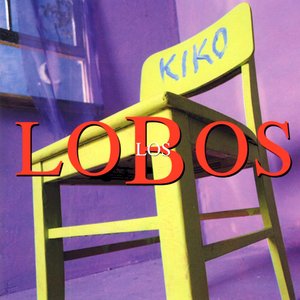Published on Oct 21, 1999
Rap, metal-rap, electronica, techno or whatever trend record
labels are scrambling to cash in for the last part of this decade,
it’s definitely not rock. Rock has become the new four-letter word
in the music industry.
Bands and artists like Bjork, Radiohead and Moby have been able
to mine some fresh material and have made it fresh and alive. It
seems that there’s nothing left for rock music to do that hasn’t
been done at least 15 years ago.
All of this was said by the skeptic before putting on the new
Los Lobos album,
This Time. Honestly, with a band like Los Lobos out there,
well into their second decade of rocking, I have to laugh at people
who think rock music cannot sound new or fresh. For those who need
some reassurance rock still means something, by all means, pick up,
Kiko, the band’s 1992 flat-out masterpiece.
In all fairness, Los Lobos does get some help in making
Kiko feel like an organic whole. Instead of the usual bass,
guitar, drums setup for a rock band, Los Lobos is not afraid to
incorporate sax, melodica, accordion, banjo, guitarron or whatever
the hell they need to get the sound they want.
The opening guitar lick in “Dream In Blue” is sparse and clean.
It automatically gets you in the mood to take a long drive and look
at the autumn leaves. The song also incorporates a lot of dream
imagery, something that will become a recurrent theme in
Kiko.
Los Lobos is one of those few bands who can actually blend
different genres into their own style without sounding like they’re
cashing in on some trend. Rock, blues and traditional Latino
melodies often collide in a exhilirating mash in songs like “Wake
Up Dolores,” the lullabye “Saint Behind The Glass” and the hard
hitting “Wicked Rain.”
Most of
Kiko focuses on the blues, however. The playful guitar lines
of “The Train Don’t Stop Here,” doesn’t mask the fact that the main
character is hurting after being smitten by his ex. A woman’s
suffocating, and possible violent relationship is chronicled in
“Reva’s House.” And depression is all over the homicidal “When The
Circus Comes.”
The band takes on weightier issues, such as homelessness on the
beautiful shuffle of “Angels With Dirty Faces.” Most of the songs
on
Kiko effectively combine weighty issues with irresistable
hooks and expert musicianship. The real stunner of
Kiko is that the songs are so good, you would swear that
they have been around for decades.
“Peace” brings the album to a close. It doesn’t say that things
are going to be fine tomorrow, but the vocals of David Hidalgo put
you at ease with lyrics like, “There is a man standing on the
street/ Shouting loud above the crowd/ Saying to everyone around –
oh yeah.”
Bands that have been around for more than 20 years can be a
scary sight. Just look at all the reunion tours at your local state
fair next year. You want to hear the older material and then you
groan (for usual good reasons) when the band says, “..and we’ve got
a new album out.” Thankfully, that’s not the case for Los Lobos.
Like Dylan, well into their careers they pull out a classic that
many consider is their best work. That accomplishment should be
enough to put all those “rock is dead” fatalists to rest. Amen.
